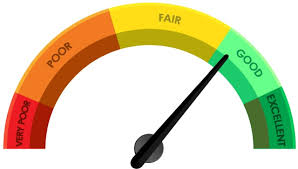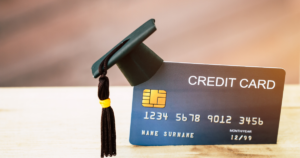
Credit card debt is a type of unsecured liability; it is deemed ‘unsecured’ since it has no collateral or the bank has nothing to hold on to in case you decide to turn your back into your debt. That’s where credit score comes in. Credit scores are a numerical representation of your ability to pay back your debts based on your credit history. Credit scores range from 300 to 850. A higher score means you are more creditworthy. Having a higher score is a good indication to creditors that you are more likely to meet your monthly financial commitments. On the other hand, if you have a low credit score, this is an indication that you may be more apt to default. If your credit score is low, what can you do to build it up? Here are some tips:
Tips to Start Rebuilding Credit
Check Credit Reports Regularly
Reviewing your credit report regularly is very important. You can receive a free credit report from each of the three credit reporting agencies at www.annualcreditreport.com. Another strategy of monitoring your credit report is to space the credit report reviews by pulling one every four months from one of the three credit reporting agencies. This way the report is still free, and you can monitor throughout the year and address any issues that you may have encountered.
Also, keep track of all your monthly bills. This makes it easy to cross check your credit report with your bank statements, and keep tabs on any errors on your credit report.
Pay Bills On Time
Late payments can negatively affect your credit score. That is why paying on time is very important. If you can’t pay off the entire balance, try to pay at least the minimum. However, continuing to pay only the minimum can throw you off too. Therefore, unless it’s a dead end situation, the recommendation is that you pay more than the minimum to save on high-interest charges.
Setting reminders on payment due dates on your phone or using an app is a good way to keep tabs on your due dates. The idea is to form a habit of making on-time payments. This way you can save on interest and fees while keeping your credit score green.
Don’t max out your cards
Having more credit transactions is not the key to improving your score. Maintaining the credit utilization ratio under the recommended 30% helps when rebuilding credit. For instance, if you have three credit cards and your utilization rate on one is always above the recommended level it can reflect negatively on your credit score.
Only spend what you can afford
While taking out debt may help build your credit history and impact positively towards your score, you need to make sure you only spend what you can afford. Using a credit card for everyday expenses is alright if you can pay the credit card bill off in full each month. If you are a Rewards member, this can earn you points. However, do not let the accumulation of points convince you to spend more to build your score. If you’re running to your credit card when your car, refrigerator or something else breaks down, start an emergency fund to pay for repairs.
Rebuilding credit and your credit score can take time. It’s not easy to pay for all that money that you owe. However, forming a habit to regularly check your credit score, pay your bills on time, not always rely on your credit cards for purchases, and spend only what you can afford are great first steps.
Author Bio:
Abby Whitmer is a college student and a blogger at Direct Finance Loans. She was once buried in student loan debt compelling her to develop frugal habits and focus more on her personal finances. This is her main motivation to continue her writing on money management tips for college students.
If you’re struggling to pay off debt, ACCC can help. Schedule a free credit counseling session with us today.





